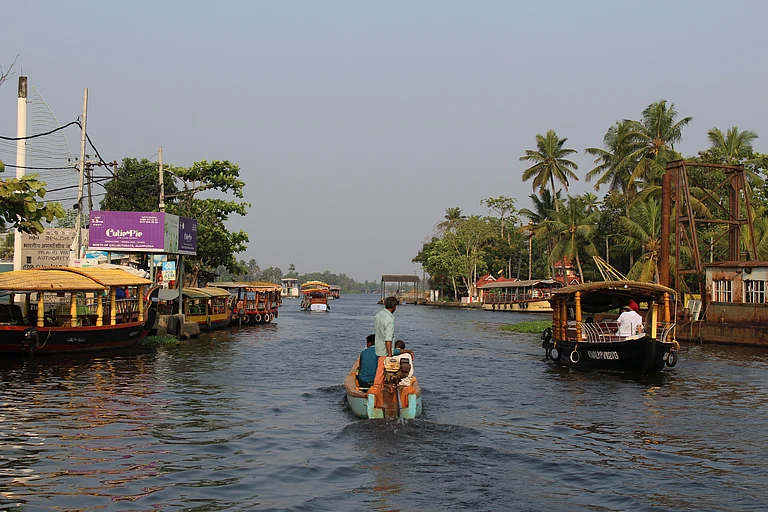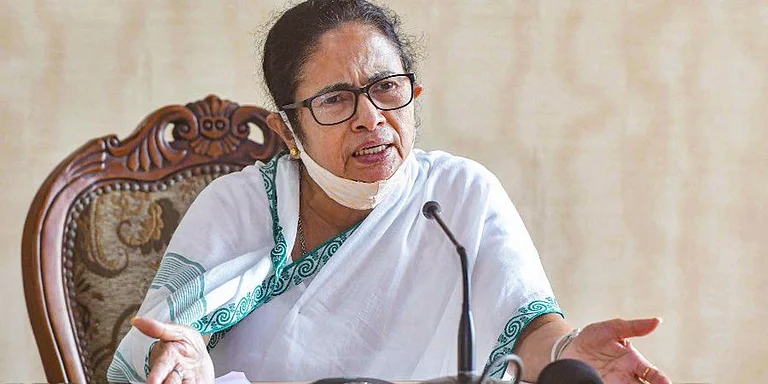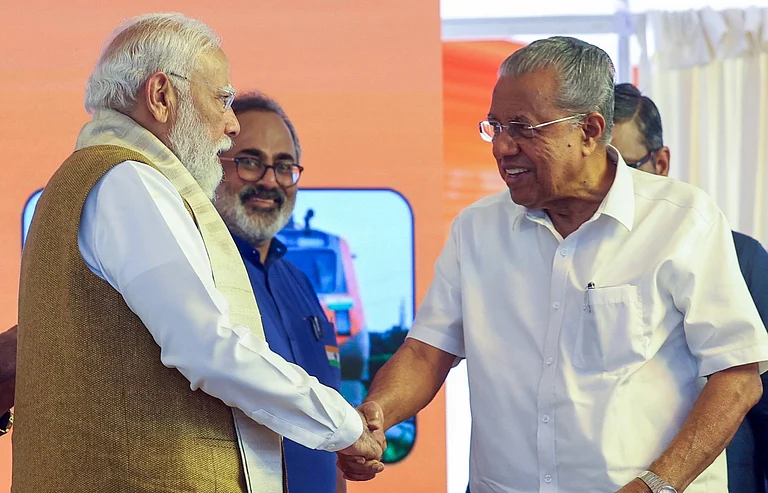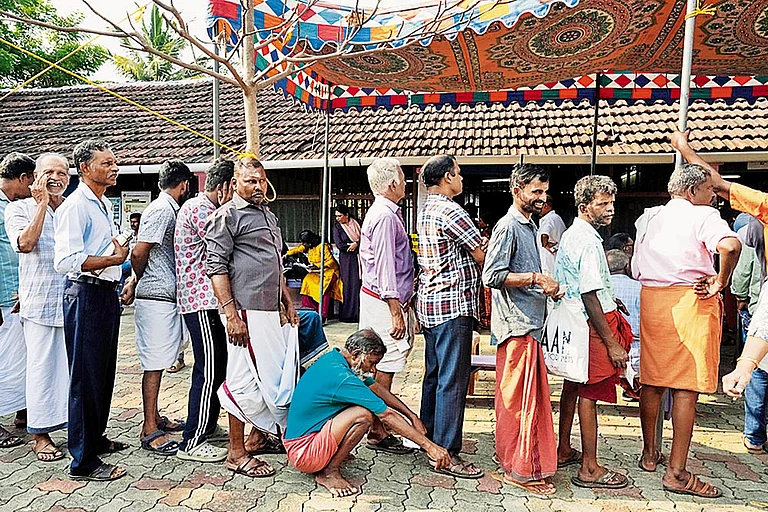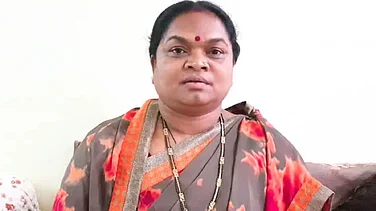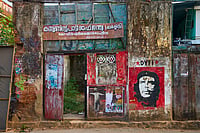It took a superstar film actor to uncover the long-hidden ‘anomaly’ of Hindutva in Kerala, a state long believed to be ‘secular’ and ‘progressive’ under the banner of Kerala exceptionalism. While it is true that Kerala has managed to contain the electoral success of the Hindutva Parivar since the 1950s, with mainstream political fronts making mutual compromises to keep Parivar candidates at bay in both the assembly and Parliament, Hindutva has nonetheless made significant inroads. In a research paper published in 2021, I presented how Hindutva established a “decisive presence—physical, emotional and ideological—in Kerala over the past eight decades”. Despite such visible growth, mainstream intellectuals have often treated Hindutva’s presence as “either an invisible melancholy or an inconsequential anomaly,” failing to unearth the complicated web of relations that underlies its political growth”.
Since the formation of the Kerala Hindu Mahasabha in 1925, the Hindutva Parivar has systematically worked to increase its presence in the state. In the 1930s, the Rashtriya Swayamsevak Sangh (RSS) decided to expand its organisational networks beyond Maharashtra to create a united Hindu force, establishing full-fledged branches in Kerala in the early 1940s. In 1942, Sarsanghchalak M S Golwalkar sent D P Thengadi to Kerala as the state Pracharak to unite Hindus, and a scion of the Zamorin family (the erstwhile rulers of Calicut) hosting him. Under Balasaheb Deoras, the RSS expanded its urban base in Kerala through rigorous “Hindutvaisation” efforts, attracting Hindu youth from intermediary caste groups since the mid-1970s.
Recognising such growth of Hindutva, Kerala became the first state in India to pass a resolution against it in 1979, in light of “their anti-secular and anti-minority activities across the state.” This resolution, presented by the then Chief Minister P K Vasudevan Nair, was passed unanimously by the assembly members. Despite this resolution, Hindutva has continued to make its presence felt across the state. After the formation of the Bharatiya Janata Party (BJP) in 1980, the Parivar also entered the electoral politics of Kerala.
Neo Hindutva’s 3-1 Formula
Neo-Hindutva can be defined as a diffusing cultural nationalist agenda seeking new means and actors to reach beyond its original upper caste Hindu base. Kerala, home to classical Hindutva’s original internal undesirables—Communists, Muslims and Christians—has become a successful experimentation ground for neo-Hindutva. It leverages new partnerships in Kerala through fluid collaborations and continuous self-improvisation, utilising platforms that include social media, gurus and their followers, and cinema. Similar strategies succeeded with tribal populations in Northeast India and Dalits in Gujarat, and the Parivar hopes to replicate and refine these efforts in Kerala.
During the classical Hindutva period, Christians were as despised as other groups and faced harsh criticism from Parivar leaders. However, in the new context, the Parivar has actively sought the support of Kerala Christians to form a political coalition against the state’s two major political formations―the Left Democratic Front (LDF) and the United Democratic Front (UDF). Since the early 2010s, the neo-Hindutva Parivar has worked to strengthen relations between Hindutva and Christian communities, and Parivar representatives regularly meet with key Christian leaders throughout the state. The Parivar plan to establish a Christian organisation has also gained support from some church figures, who view it as a positive step for dialogue. Thus, neo-Hindutva maintains distance with two of the original threats while frequently engaging with the Christian community, where local churches and clergy play a crucial role.
Creating History
Suresh Gopi’s electoral triumph and the National Democratic Alliance’s (NDA) significant gain in vote share indicate the successful implementation of the neo-Hindutva strategies and the 3-1 formula. Gopi is media-savvy, visually appealing, wealthy, and upper-caste, and he has cultivated the image of a hypermasculine virat man. He positions himself as a saviour, defender, and philanthropist who keeps a close relationship with Prime Minister Narendra Modi who claimed to be a divine being during the election campaigns. During election campaigns, Gopi invoked his closeness to Modi, and exuded an aura of infallibility and megalomania while also displaying a playful demeanour. In Thrissur, he portrayed himself as the lost brother of Christians.
Thrissur, Gopi’s parliamentary constituency, remains one of the strongest Christian-dominated parliamentary seats in northern Kerala. The BJP seems to have properly assessed the potential of the Christian population, which accounts for 25 per cent of its votes. Unlike the southern districts, where Christian-majority constituencies generally get Christian candidates, one could not help but notice Gopi’s continuous metamorphisation of the saviour of both Hindus and Christians alike, using his skills as an actor. Like many post-poll analyses observe, he could build a long-term relationship with them, which in turn helped the NDA candidates from other constituencies as well. Even though it is very early to say how his continuous engagement with the Christian Church made an impact on his victory, statements from certain church establishments point to the fact that there was an understanding between the upper echelon of the church and the Parivar in Thrissur and neighbouring districts.
Some of these clergy actively participated in the public screening of the highly controversial film ‘The Kerala Story’ in Christian institutions days before the elections to maintain a heightened sense of suspicion among the region’s important religious minorities. Such visible mutual assistance between the BJP and a section of the Christian church seems to have given definite rewards to the NDA in several parliamentary constituencies in these elections. The gradual departure of a section of traditional voters of the LDF and the UDF also added to these electoral rewards. While the neo-Hindutva gains steady momentum in the state, the Left leaders continue to deny the palpable anti-incumbency, and the UDF leadership struggles to attract the young voters, except in a few places where they fielded candidates who could connect with the younger voters.
Christian Far Right and Neo-Hindutva
The expansion of neo-Hindutva in Kerala is accompanied by the rising influence of the Christian far right, epitomised by the ‘Christian Association & Alliance for Social Action (CASA).’ This organisation aligns with the views of the Parivar on contentious issues such as ‘love jihad,’ ‘halal food,’ and the Citizen (Amendment) Act-National Register of Citizens, and has played a significant role in fomenting tensions between the Muslim and the Christian communities, particularly since 2019. The CASA’s official website features highly provocative rhetoric against Marxists, the Congress party, and Muslims, reaching a substantial audience through the social media.
The group has publicly endorsed Parivar candidates across Kerala and has actively campaigned to bolster support for Parivar candidates nationwide. The CASA has accused the Congress party of endorsing homosexuality and ‘love jihad’, claiming that those who vote for the Congress cannot be considered true Christians. On the election day in Kerala, the CASA declared that voting for the Congress would be deemed as an “unpardonable sin”, drawing a direct reference from the Bible to influence the Christian voters. A significant portion of the Christian clergy has indirectly supported the CASA’s initiatives and has endorsed its calls to boycott the UDF and the LDF candidates.
Future analysis of neo-Hindutva in Kerala must scrutinise the notable surge in the BJP votes in constituencies with a Christian population exceeding 20 per cent. It is unlikely that Christians voted en masse for the NDA, distancing themselves entirely from their natural ally, the UDF, and their tactical ally, the LDF. Nonetheless, a substantial three-per cent increase in the Parivar’s vote share cannot be comprehended without considering the Christian swing, especially given the absence of a charismatic Parivar leadership in Kerala and a Modi wave in India. This phenomenon is particularly puzzling given that the INDIA bloc remained favoured among Kerala voters, and the Congress retained its popularity among the upper caste voters in the state in 2024, except in specific areas such as Thrissur and Thiruvananthapuram.
The author is a Fulbright Research Fellow, Department of South Asia Studies, University of Pennsylvania




